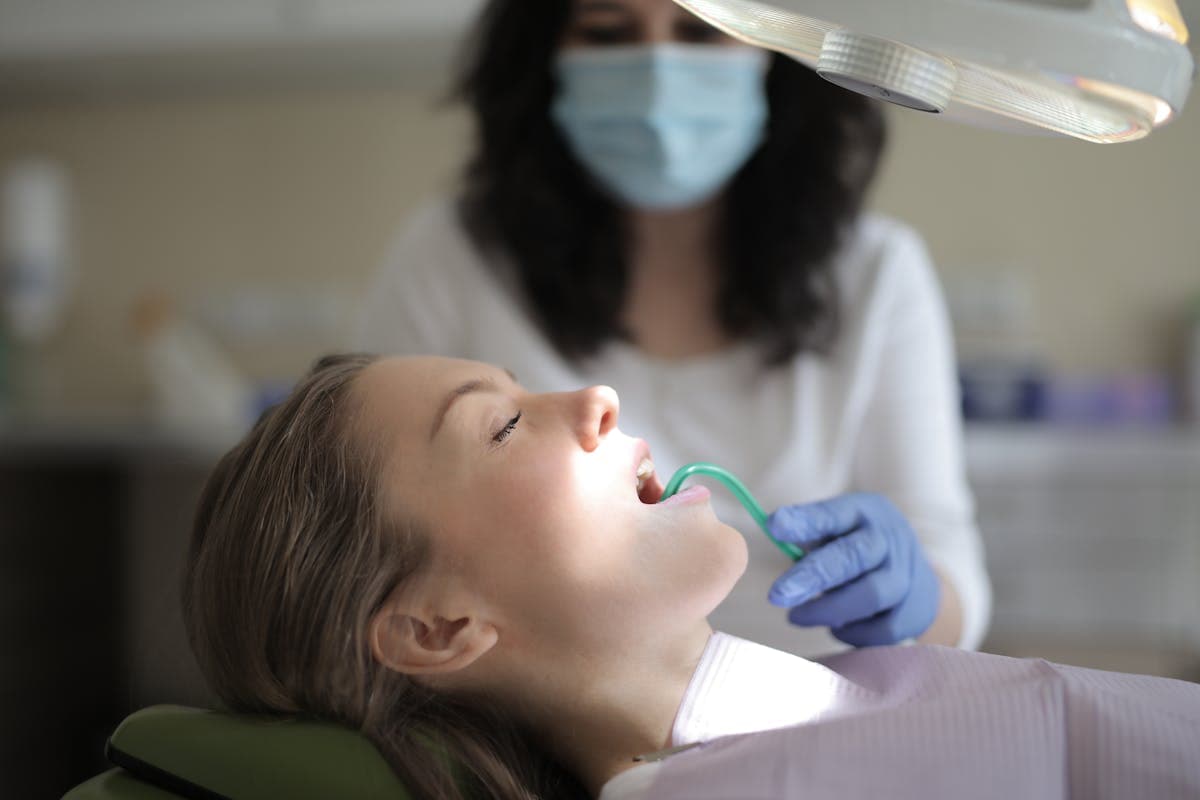In the domain of dental procedures, one often experiences a temporary loss of sensation in the mouth due to local anesthesia, which typically subsides within a couple of hours. However, what if the numbness persists far beyond the expected timeframe? The duration of numbness can be influenced by a multitude of factors ranging from the type of anesthesia administered to individual health conditions, or even the complexity of the dental procedure itself. In some instances, prolonged numbness could potentially signal nerve damage or other complications. This necessitates a deeper exploration into the causes and implications of such a prolonged effect.
Understanding Dental Anesthesia
While dental procedures can often cause anxiety, the use of dental anesthesia serves as an essential tool to guarantee patient comfort and pain management. Anesthesia is administered in varying forms and strengths, depending on the intensity of the procedure, the patient’s health condition, and the level of dental anxiety. For patients with heightened dental anxiety, anesthesia alternatives such as conscious sedation or general anesthesia may be considered. The duration of mouth numbness post-procedure can range from a few hours to several, contingent on the type of anesthetic used. It’s critical to understand the diverse variables affecting the duration of anesthesia’s effects to manage expectations and guarantee peak post-procedure comfort. Dental professionals should provide thorough information about the anesthesia process to alleviate patient concerns.
How Anesthesia Works
To fully appreciate the impact of anesthesia on the duration of mouth numbness, a thorough understanding of how it functions is necessary. Anesthesia operates by temporarily blocking nerve signals in your body. Depending on the anesthesia types used, the scale of this block can range from a small area of your mouth to the entire body. Local anesthesia, often used in dentistry, is a type of nerve block that numbs a specific area. It works by inhibiting sodium channels, thereby stopping the propagation of nerve signals responsible for sensation. This causes a temporary loss of sensation, including pain, in the area where it’s applied. Understanding how anesthesia works can bring clarity to why mouth numbness might persist for varying durations.
The Normal Duration of Numbness
The typical duration of oral numbness post-dental anesthesia varies among individuals and is influenced by a variety of factors. A thorough comprehension of dental anesthesia and its effects on the body is essential to understanding this variation. Additionally, strategies for managing instances of prolonged numbness will be discussed in the following sections.
Understanding Dental Anesthesia
Given the commonality of dental procedures, it is crucial to understand the implications of dental anesthesia, particularly the normal duration of numbness. Dental anesthesia aims to reduce dental anxiety, making procedures more comfortable for patients. Anesthesia types vary, primarily local, sedation, and general anesthesia. Each has a unique effect and duration period.
- Local anesthesia blocks nerves in a specific area. Numbness lasts approximately 1 to 2 hours.
- Sedation anesthesia suppresses consciousness. Drowsiness may persist for a few hours.
- General anesthesia renders patients unconscious. Residual effects can last up to 24 hours.
Understanding the anesthesia type and its normal duration of numbness helps manage expectations and reduce anxiety. Remember, prolonged numbness beyond these averages may require medical attention.
Factors Affecting Numbness Duration
While understanding the types of dental anesthesia and their typical durations is important, it’s equally valuable to contemplate the various factors that can influence numbness duration. These factors include the type and amount of anesthetic used, the specific dental procedures performed, and a patient’s individual health variables. The choice of anesthetic can considerably affect numbness duration, with certain drugs known to last longer than others. The complexity and invasiveness of dental procedures can also prolong numbness, as more intensive treatments often require higher anesthesia doses. Finally, individual health variables play a role. For instance, patients with slower metabolic rates may metabolize anesthetics more slowly, causing prolonged numbness. Understanding these numbness causes can help patients manage their expectations post-procedure.
Dealing With Prolonged Numbness
Although prolonged numbness following dental procedures can sometimes be unsettling, it is often a normal part of the recovery process. It is vital to understand the various numbness causes and effective methods of managing discomfort during this period.
- Over-the-counter pain relievers: Non-prescription drugs can help manage the discomfort associated with prolonged numbness.
- Hot and cold compresses: Alternating between these can provide relief.
- Gentle massages: Rubbing the numb area gently can stimulate blood flow, reducing numbness.
- Patience and rest: In most cases, the numbness will dissipate over time.
A clinical approach is always the most effective in understanding and dealing with prolonged numbness. If numbness persists for an unusually long period, it is advisable to consult your healthcare provider.
Possible Reasons for Prolonged Numbness
In instances where numbness persists beyond the standard duration, several factors may be implicated. An over-administration of local anesthetic may result in extended numbness, as could certain underlying medical conditions. Additionally, a persistent nerve blockade could contribute to an extended period of numbness.

Overdose of Local Anesthetic
An excessive amount of local anesthetic administered during a dental or oral procedure can serve as a significant contributor to prolonged mouth numbness. This situation, often referred to as an overdose of local anesthetic, can occur due to various reasons, including the type of local anesthetic used, the individual’s body weight, and their overall health status.
- Different local anesthetic types have varying durations of action and toxicity levels, influencing the numbness duration.
- Anesthesia overdose symptoms might include prolonged numbness, dizziness, palpitations, and even seizures in severe cases.
- Body weight plays a vital role in determining the safe dosage of local anesthetic.
- Pre-existing health conditions can impact how the body metabolizes the anesthetic, potentially leading to prolonged effects.
Note that these factors should be considered in the context of the individual patient’s situation.
Underlying Medical Conditions
While it is quite common for patients to experience numbness after an oral procedure involving the use of local anesthetics, prolonged numbness can sometimes be an indication of an underlying medical condition. Certain nervous system disorders, such as Multiple Sclerosis or Parkinson’s disease, may exacerbate the effects of anesthetics and prolong numbness. Similarly, diabetes can lead to neuropathy, a condition that affects nerve sensitivity and may extend numbness duration. In addition, medication interactions can influence the body’s response to anesthetic agents. For instance, medications altering liver enzyme activity can slow the metabolism of anesthetics, prolonging their effects. Consequently, it’s essential for patients to disclose their medical history and current medications to their dentist prior to any procedure.
Prolonged Nerve Blockade
Despite the commonality of transient numbness following dental procedures, prolonged numbness may be attributed to a phenomenon known as prolonged nerve blockade. This occurs when local anesthesia techniques result in extended sensory loss, well beyond the expected duration. Several factors may contribute to this, including:
- Duration and concentration of the anesthetic agent used
- Individual sensitivity to anesthesia
- The specific nerve targeted
- The rate of nerve regeneration post-procedure
The last point is especially significant, as nerve regeneration can be unpredictable, potentially leading to prolonged numbness. While this is usually temporary, any persistent numbness should be evaluated by a healthcare professional to rule out any potential complications.
Potential Health Risks
Should you experience prolonged mouth numbness, it is essential to understand the potential health risks associated with this symptom. Persistent numbness risks include nerve damage, an unpleasant condition that can lead to ongoing discomfort and impaired oral functions. In severe cases, this can evolve into dysesthesia, a distressing disorder characterized by abnormal sensations such as burning or tingling. In addition, chronic numbness may mask other health complications, delaying necessary treatment. For instance, it could conceal an underlying infection, leading to systemic complications if left untreated. Also, prolonged numbness may affect your ability to eat or speak properly, potentially leading to malnutrition or social discomfort. As a result, understanding these risks is vital for anyone experiencing extended periods of mouth numbness.
When to Contact Your Dentist
Wondering when to seek professional help for persistent mouth numbness? It’s vital to understand that extended numbness can signal dental emergencies. Discussing anesthesia safety with your dentist beforehand is important, but there are signs you should not ignore post-procedure.
- Prolonged numbness: Numbness lasting more than a few hours after a dental procedure could indicate nerve damage.
- Severe pain: While some discomfort is normal, severe or increasing pain requires immediate attention.
- Difficulty swallowing or breathing: These could be signs of an allergic reaction or anesthetics complications.
- Swelling or bleeding that doesn’t subside: Post-procedure swelling should decrease over time. If not, contact your dentist promptly.
At-Home Remedies for Numbness
An array of simple yet effective home remedies can help alleviate the discomfort of mouth numbness after a dental procedure. These natural treatments can provide relief without causing additional harm or discomfort to your mouth.
Warm salt water rinses are a common remedy, known for their antiseptic qualities and capacity to promote healing. Swishing the solution gently in your mouth can also boost circulation, which may aid in reducing numbness. Another prominent home remedy includes clove oil, revered for its analgesic and anti-inflammatory properties. Applying a small amount on the numb area can help alleviate discomfort.
While these home remedies can provide temporary relief, it’s essential to consult with your dental professional to confirm they are suitable for your specific situation.
Tips to Prevent Prolonged Numbness
While home remedies can offer temporary relief from mouth numbness, it is equally important to focus on preventive measures that can minimize the likelihood of experiencing prolonged numbness post-dental procedures. These numbness prevention strategies can greatly improve your dental experience and recovery period.
Here are some dental tips to prevent prolonged numbness:
- Prior to the procedure, maintain excellent oral hygiene to reduce the risk of infection, which can prolong numbness.
- Discuss your concerns about numbness with your dentist, who can adjust the anesthetic dosage.
- Avoid smoking or consuming alcohol post-procedure as these can delay the healing process.
- Stay hydrated and maintain a balanced diet to promote faster recovery.
Frequently Asked Questions
Can I Eat or Drink While My Mouth Is Still Numb?
While experiencing oral numbness, eating restrictions and drinking precautions should be observed to avoid inadvertent injury. It’s advisable to refrain from consuming food or beverages until normal sensation returns to guarantee safety and prevent choking or burning.
Does Dental Anesthesia Affect My Overall Cognitive Functions?
Dental anesthesia primarily impacts the localized area of administration and typically does not affect overall cognitive functions. The duration of anesthesia may vary, but its cognitive effects remain limited and temporary, if experienced at all.
Are There Activities I Should Avoid While Experiencing Prolonged Numbness?
Yes, while experiencing prolonged numbness, it is advisable to avoid eating, drinking hot beverages, and smoking. These safety precautions are important to prevent unintentional biting, burns, and maintaining oral hygiene during this period of reduced sensation.
Can Prolonged Numbness Affect My Speech or Ability to Communicate?
Yes, prolonged numbness can impact your speech clarity, leading to communication challenges. The numbness may affect your ability to articulate words properly, potentially slurring your speech or making it harder to pronounce certain sounds.
Does Insurance Usually Cover Treatments for Prolonged Numbness After Dental Anesthesia?
Insurance coverage for treatments addressing prolonged numbness following dental anesthesia largely depends on your individual policy. Typically, complications arising from standard dental procedures are covered. However, confirm with your provider for accurate information.


